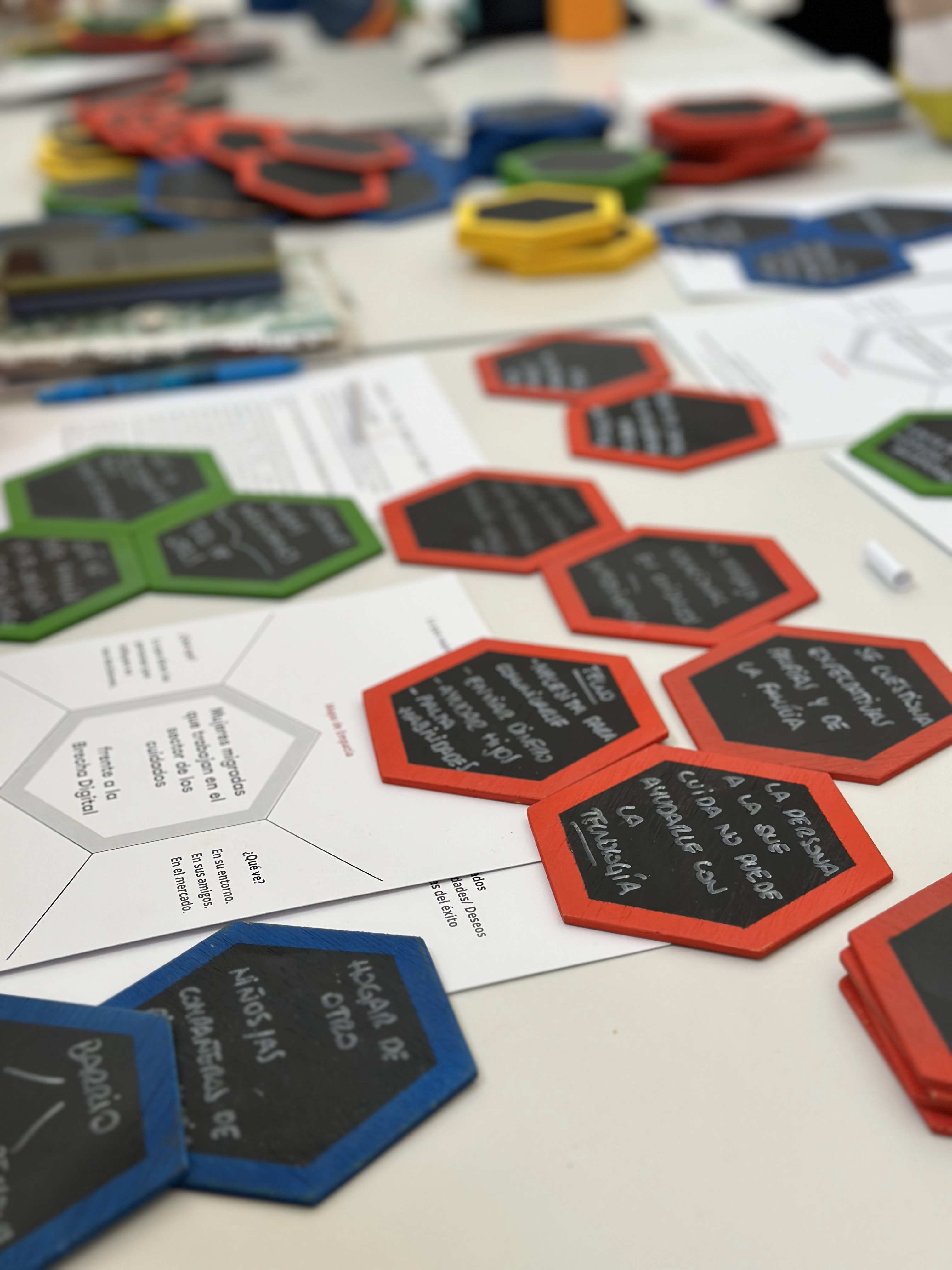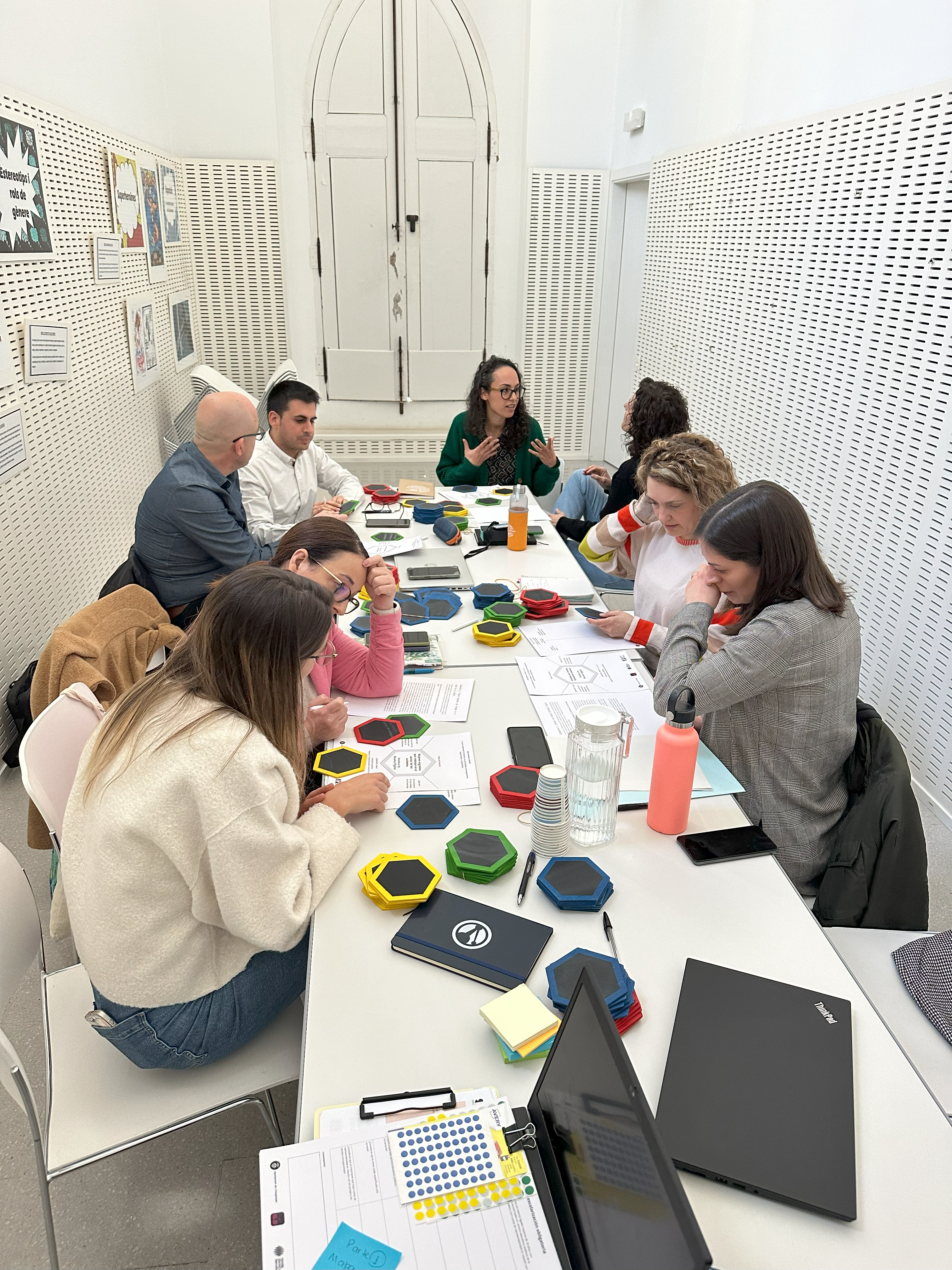
3 de April de 2024
Digital divide: a reality to be tackled collaboratively
What is the famous "Digital Divide"? It is a term that has been gaining importance in our society for some years now. According to the Organisation for Economic Co-operation and Development (OECD) it is "the gap between individuals, households, businesses and geographic areas at different socio-economic levels with respect to their opportunities to access and use information and communication technologies (ICT) for a wide range of activities". Science For Change is carrying out a project promoted by the Mobile World Capital Foundation to qualitatively study the digital divide in L'Hospitalet de Llobregat.

Through this project, we aim to gain in-depth knowledge of different realities in relation to the digital divide and co-design, together with municipal services and L’Hospitalet de Llobregat City Council, proposals for action aimed at alleviating digital inequalities.
The groups we work with are:
- Young people with basic educational levels"
- Families with children of compulsory secondary school age"
- Migrant women working in the care sector"
- Women who have suffered gender-based violence"
- Elderly people"
An in-depth knowledge of the realities of each group in relation to this phenomenon is essential to be able to address these inequalities effectively. The aim of the project is to ensure that no one is left behind in the evolution of an increasingly digitalized world.
For this reason, the project gives a voice to all stakeholders and target groups through participatory methodologies and co-design.
The chosen methodologies allow us to analyse the reality based on the experiences and knowledge of the people from their daily lives, emotions, beliefs, needs, perspectives and experiences. Likewise, it will be possible to identify the challenges related to the digital divide in order to co-create possible solutions and design an action plan.
Bridging the digital divide is essential to ensure equity in access to opportunities. To do this, we need to understand the realities of the people affected and create targeted solutions
Agostina Bianchi
Project Manager at Science For Change
During the project, first a mapping of actors and a call for proposals will be made through the collaborating entities to invite people from different sectors to participate in the project.
Afterwards, the project will move on to the implementation phase, where data collection and co-design with municipal services and entities will be carried out to define action plans. The data collected will also be analysed, and the corresponding reports will be drafted for each group.
In the final phase, a methodological guide for the study and a final report will be drawn up in which the experiences and lessons learned with each of the specific groups will be compiled.



